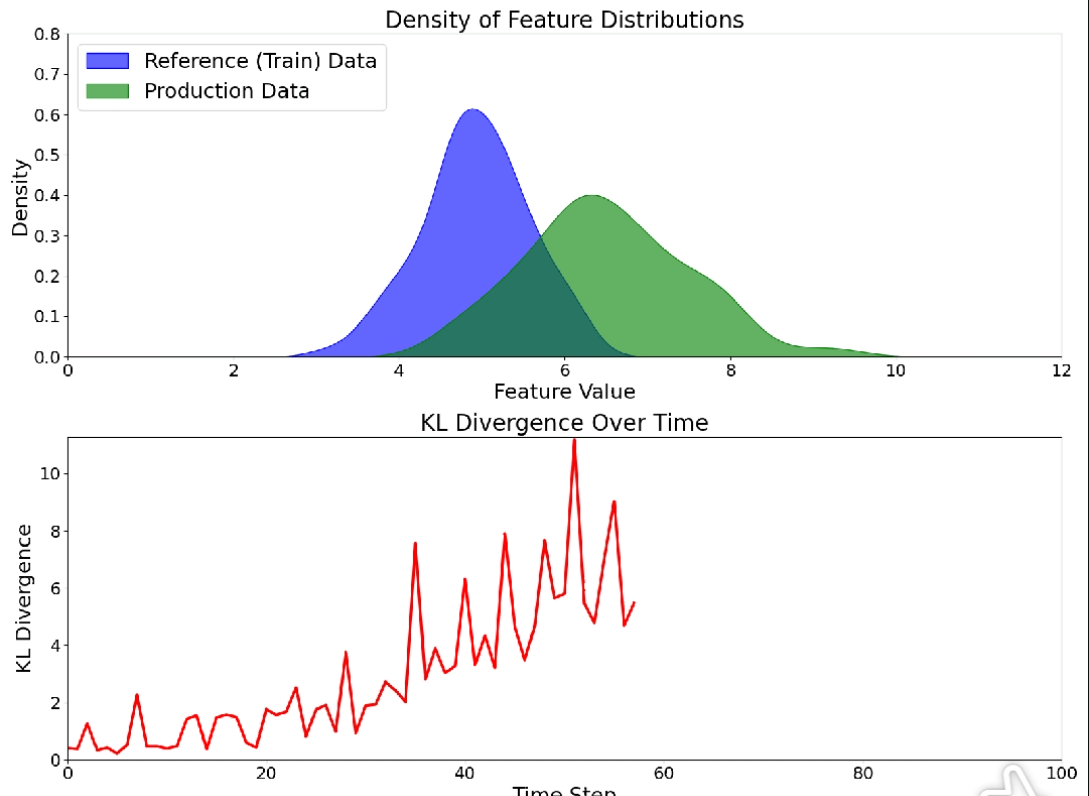Not Data Drift
TL;DR. Data drift is a change in the input data. Concept drift is a change in input-output relationships. Both often happen simultaneously.
Performance drift refers to the gradual decline in a machine learning model's accuracy or effectiveness over time as the underlying data distribution changes.
This phenomenon occurs when the real-world data that the model is applied to differs from the data it was trained on. Mathematically, this is often represented by a shift in the joint distribution of the features and target variable .
Performance drift can occur due to ==concept drift (when the relationship between inputs and outputs changes) or covariate shift== (when the distribution of the inputs changes). The model’s prediction error increases, leading to suboptimal decisions or predictions.
Key Components:
- Concept drift: Changes in the relationship between inputs and outputs, .
- Covariate shift: ==Change in the input data distribution, .==
- Model monitoring monitoring: Continuous assessment of a model’s accuracy over time to detect drift.
- Retraining: Updating the model with new data to restore performance.
Important
-
Performance drift results from data distribution shifts, leading to increased prediction errors.
-
Monitoring and retraining are key strategies to address performance drift in real-world applications.
-
A lack of continuous monitoring can result in undetected model performance degradation.
-
Overfitting a model to the original data without considering future data can accelerate drift.
Example In a credit scoring model, performance drift may occur if consumer spending habits change due to an economic recession. The model trained on pre-recession data will perform poorly on post-recession data as the input patterns () and the relationship between inputs and outputs () shift.
Questions
- How can adaptive learning techniques help mitigate the effects of performance drift?
- What statistical methods can be used to detect early signs of concept drift in production models?
Related Topics
- Model retraining strategies
Images
